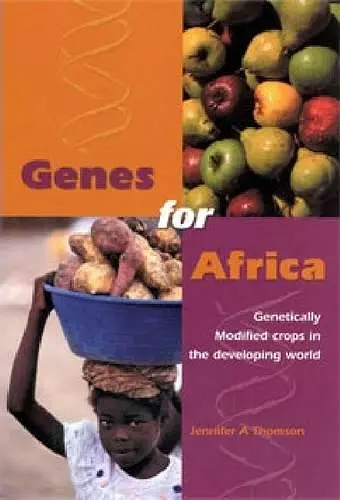Genes for Africa
Format:Book
Publisher:University of Cape Town Press
Published:30th Jul '02
Currently unavailable, and unfortunately no date known when it will be back

Separating fact from fiction, this book explains why and how genetically modified (GM) crops can help combat poverty, starvation, and disease in the developing world in a safe and responsible way. Explained are the differences and similarities between genetic modification, conventional plant breeding, and natural processes such as crosspollination and mutations. Controversial issues such as patents, labeling, regulations and controls, and food safety for GM crops and organically grown food are addressed. Additional information on horizontal gene transfer and testing for allergens is also provided.
Jennifer Thomson separates fact from fiction and explains why and how GM crops can help combat poverty, starvation and disease in the developing world, in a safe and responsible way. She explains the technology, addresses controversial issues such as food safety, patents, labelling, regulation and controls, and ends with a focus on Africa and possible future developments in GM technology.In Genes for Africa, Jennifer Thomson separates fact from fiction and explains why and how GM crops can help us combat poverty, starvation and disease in the developing world, in a safe and responsible way. She explains the technology, addresses controversial issues such as food safety, patents, labelling, regulation and controls and ends with a focus on Africa and possible future developments in GM technology.
"We have reassurances from those with a financial stake in GM technology that all is well and allegations from the anti-GM lobby that these organisms present a clear danger to the environment and human health. The truth, of course, is somewhere in between these two positions, and the public deserves a more factual and reliable source of information on this issue." Michael Shelby, National Institute of Environmental Health Sciences USA "True environmentalism recognises the need for development, for growing food and making livelihoods available to the poor, and aims to minimise the risks and damage. You will find the real facts discussed here and placed before you in an enthusiastic but always scientifically controlled way." George Ellis, Department of Mathematics and Applied Mathematics, UCT
ISBN: 9781919713571
Dimensions: 171mm x 217mm x 15mm
Weight: 300g
197 pages